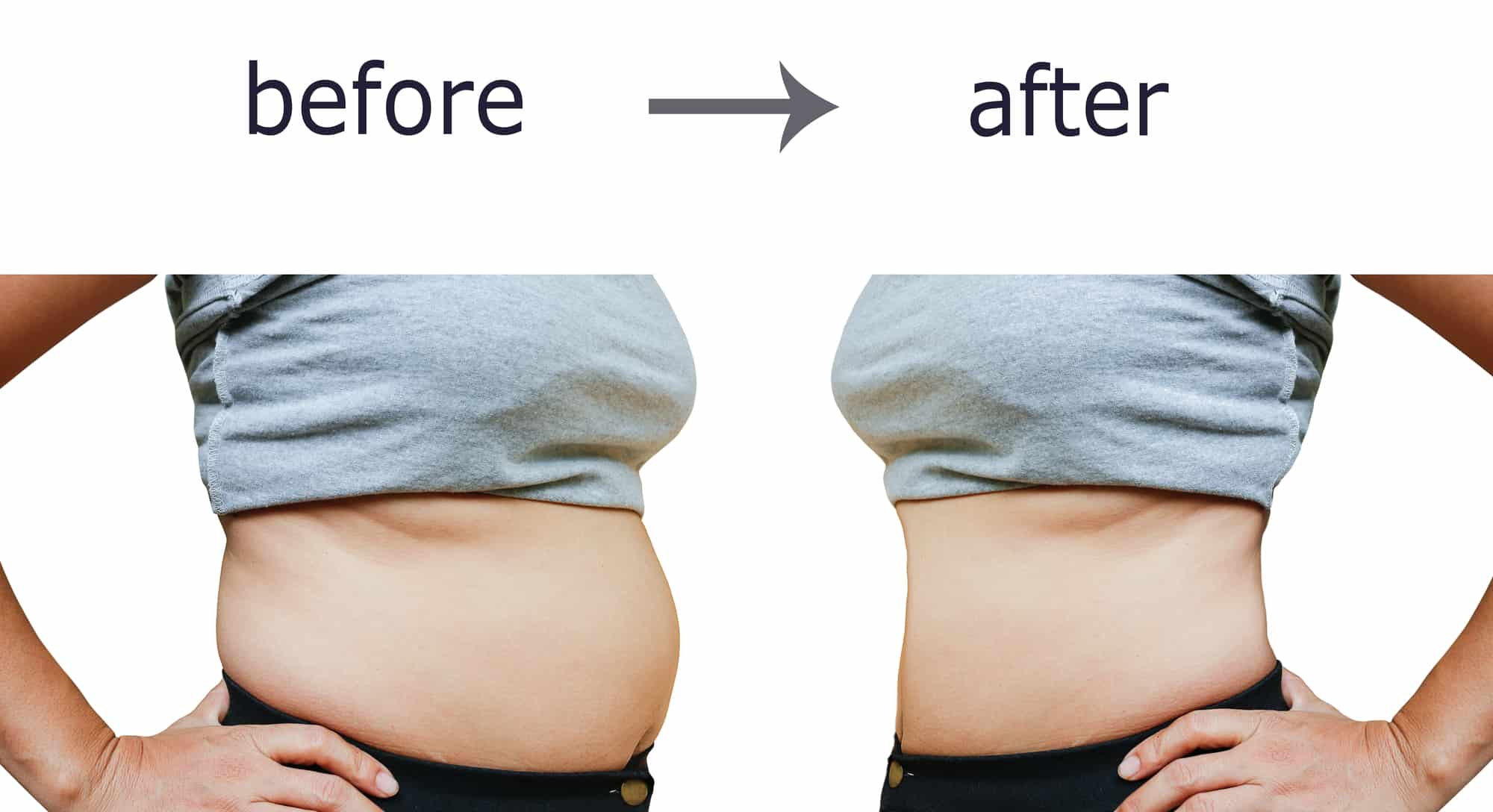Study: Stress may cause excess abdominal fat in otherwise slender women
Such was a very intriguing research title that captured my attention about a month ago. But, is this where the “devil” lies? Have we neglected the main reason why ab exercises bring little results, and most diets are ineffective? In the time when women are sadly pressured to get rid of their belly inches (which is a natural thing for us), it’s crucial to get a deeper understanding of the topic.
Belly fat, or what seems like it, can be caused by a variety of reasons, especially for women. So naturally, we are meant to have protective layers of fat around our abdomen to protect the reproductive system. In addition, women are subjected to hormonal fluctuations throughout the monthly cycles that lead to increased water retention. Add stress belly to the plate, and we have a lot to deal with.
That is why it’s essential to distinguish the reason for your “pouch” and whether it can and should be dealt with. And this is precisely what I’ve been doing these days; studying stress bellies, how to recognize them, and the ways to get rid of them.
What Is a Stress Belly?
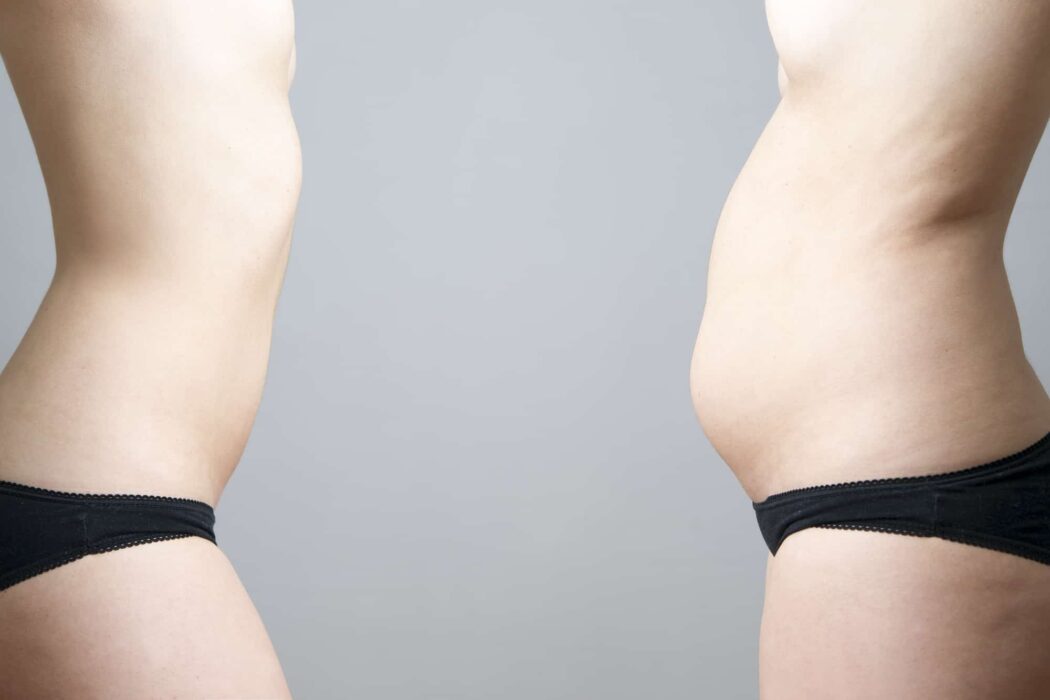
Just like the name suggests, a stress belly is the excess of stomach fat that is caused by chronic stress. As we’ve discussed numerous times in my and my colleagues’ articles, proper rest is a key factor for your well-being. It’s just as important as proper nutrition.
And though you may see excessive fat around this particular area for many reasons, we will discuss the cortisol-related one. Cortisol is a stress-related hormone, but it also takes part in aiding metabolism and regulating blood sugar levels. The study I’ve mentioned in the beginning was conducted at Yale. It found that women with excessive abdominal fat were more influenced by negative moods and had greater stress levels. Elissa S. Epel, Ph.D., of the psychiatric department of the university mentions that
Greater exposure to life stress or psychological vulnerability to stress may explain their enhanced cortisol reactivity. In turn, their cortisol exposure may have led them to accumulate greater abdominal fat.
The study explains that increased cortisol causes fat to distribute around organs. As a response to stressful = dangerous situations, the body protects essential organs to save your life. So, in theory, all is good and our bodies make everything necessary for our survival. However, today, when the threat to life is significantly reduced and we stress about more “mundane” things, the cortisol pouch is not something women desire.
How Can Stress Cause Weight Loss? Reasons and Prevention
Don’t worry; I’ve compiled a list of practical suggestions that will reduce your cortisol level and help you get rid of the excessive belly fat.
However, before that, we need to discuss one crucial issue – how to determine whether your belly fat is caused by stress or other reasons.
How to Tell If Belly Fat is From Stress?
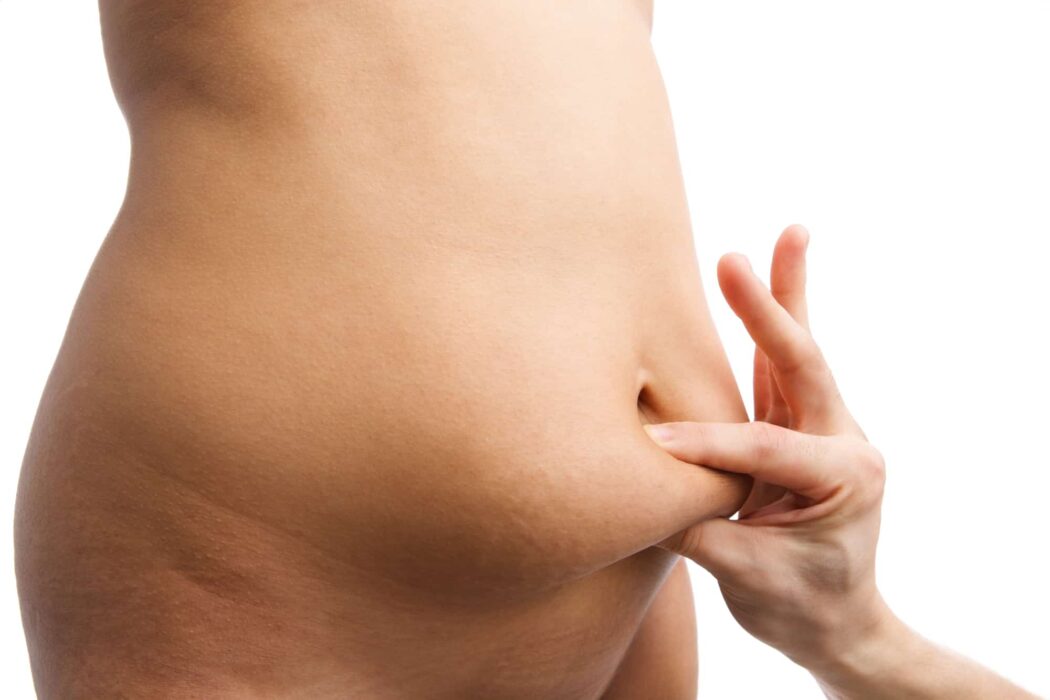
Knowing the reason behind your belly inches is the key step towards success in reducing them. Know your enemy before preparing the weapon.
First of all, you need to determine whether your pouch results from excessive fat or it’s just bloating or water retention.
- excessive gas
- abdominal rumbling or gurgles
- abdominal pain
- constipation (possible)
Bloating often occurs after a meal or at the end of the day. Usually, the symptoms bring mild discomfort and are hard to confuse with simple weight gain.
- swelling of affected body parts
- rapid weight gain over a few days or weeks
- unexplained weight fluctuations
- puffiness of the abdomen, face, and hips
- swollen ankles
The following issues and conditions can cause water retention:
- hot weather
- pregnancy
- medications
- high sodium intake
- hormonal changes
As you see, hormonal changes can cause both excessive water retention and fat accumulation. However, there is one universal trick that helps to determine which one you have:
In most cases, if your abdominal inches are mostly water weight, when you press a finger in your skin, it will hold the indent for a few seconds.
In addition, feet are also an obvious indicator. Check your feet as you remove socks – you’ll see the indents clearly if they are puffy.
If your belly doesn’t leave indents, you don’t fluctuate more than 500 grams a day, and you don’t feel swollen or puffy; this is sadly fat. If you don’t relax enough, this is partially stress-induced.
Moreover, the surest way to tell whether you have “stress fat” is to check your cortisol level in a clinic. This is a sure 100% way!
How to Lose Your Belly Fat on Keto?
Now, to the article’s main topic – what are the most effective ways to reduce stress-related fat and bring your hormones in check.
7 Ways to Reduce Stress Belly
Work Out
The first tip is actually an obvious one. What can be more effective in reducing any type of fat than becoming active? Regular workouts have proven to drastically reduce stress. As you work out, your body releases a healthy dose of endorphins, also known as “happy hormones.”
You can check the detailed review on how regular activities help to reduce depression, stress, anxiety, etc. on WebMD.
Regular exercise (with intensity that is chosen in accordance to your fitness level) has the following benefits:
- reduces body fat
- lower blood pressure and sugar
- helps overcome stress and depression
- strengthens heart
- tones muscles
- improves overall health and hormonal balance
Eat More Veggies and Vitamin B-rich Foods
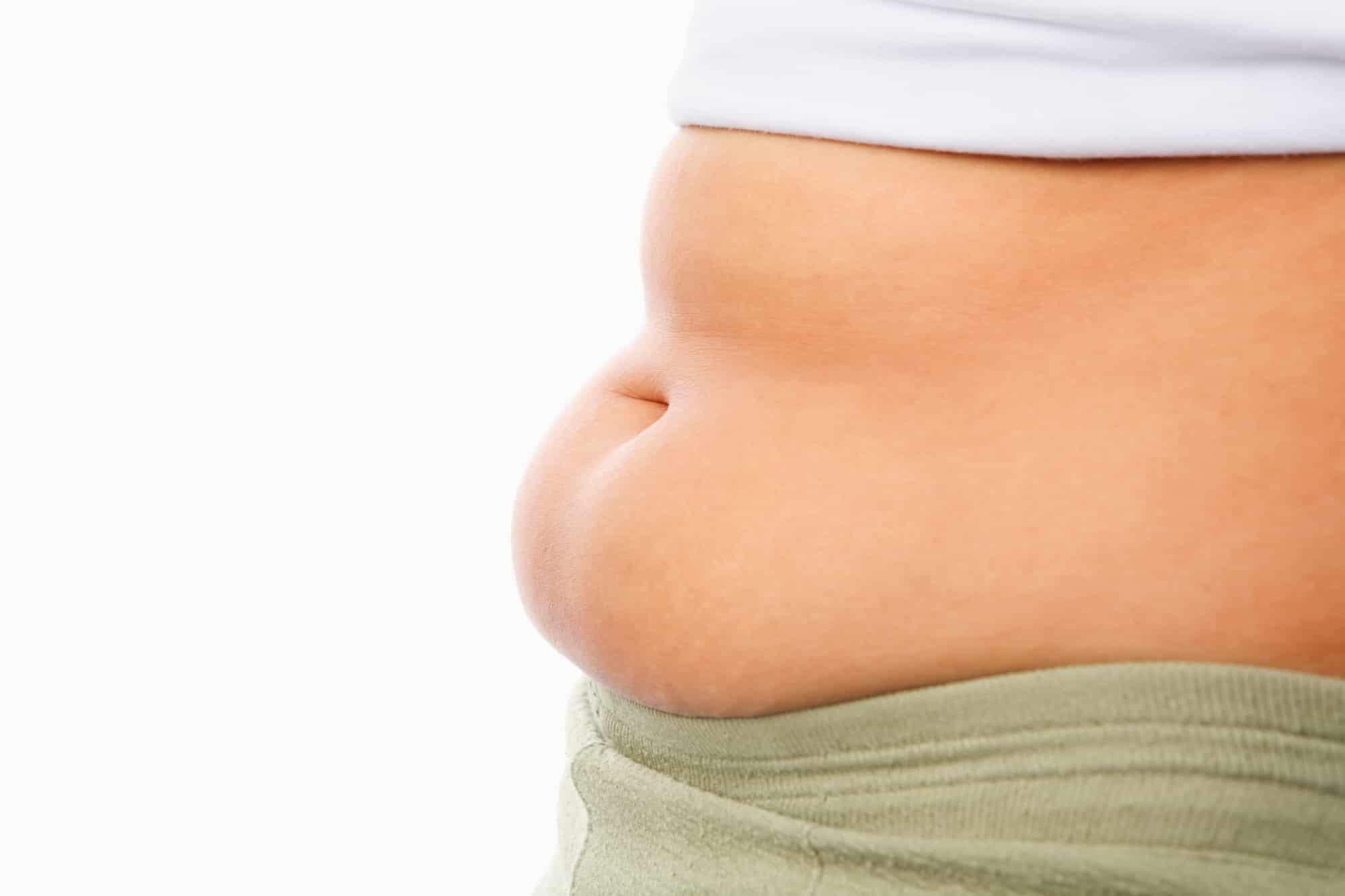
Overall, when speaking about weight loss and fitness, I always point out that you can’t spot-reduce fat. However, when it comes to belly, a proper det is even more essential for this area than for the others. Have you heard a saying:
Abs are made in the kitchen
If so, you know that your diet has everything to do with how your belly looks.
The reason is two-fold.
Mainly, you can’t see your six-pack behind a layer of fat. Plus, bloating does little to highlight its beauty.
When it comes to stress fat, a clean and healthy diet lowers cortisol levels, says Medical News Today.
Thus, if you know that your cortisol level is too high, regulate your diet immediately.
You can also see in this 2010 study that low-calorie dieting increases your level of cortisol. Which is the exact opposite of what we are aiming for. Thus, consuming just the right amount of calories is the best practice.
As for the vitamin B-rich foods, there has been preliminary evidence that an increase of vitamin B in the daily ration aids in cortisol management.
No Alcohol
The previous diet-related point is closely affected by alcohol consumption as well.
This 2008 study has found a correlation between alcohol consumption and the increase in cortisol. Moreover, the findings are not based on short-term effects right after alcohol intake. The participants showed a long-term chronic cortisol imbalance due to regular alcohol consumption.
Plus, too much alcohol in the evening is sure to lead to morning puffiness, which only adds to abdominal inches that most of us are seeking to reduce.
Alcohol during Intermittent Fasting: Everything You Need to Know
Stress-Reduction Vitamins and Supplements
I’ve already mentioned the positive effects of vitamin B to cortisol management. You can also find in the above mentioned article information about the use of multivitamins.
While the focus was on increasing B-group vitamins mainly, other supplements have proven to be of use in cortisol management as well.
Dr. Lin from Cleveland clinic recommends using camomile and lemon balm teas as effective supplements to reduce stress. Plus, ashwagandha root and Rhodiola have proven to reduce stress and anxiety as well.
One effect of Omega-3 fatty acids (among lots and lots of other benefits) is gradually reducing cortisol by improving sleep, lowering aches and pains, and reducing symptoms of metabolic syndrome directly. The latter can be an additional factor in belly fat and is closely related to cortisol and insulin resistance.
Sleep More and Better
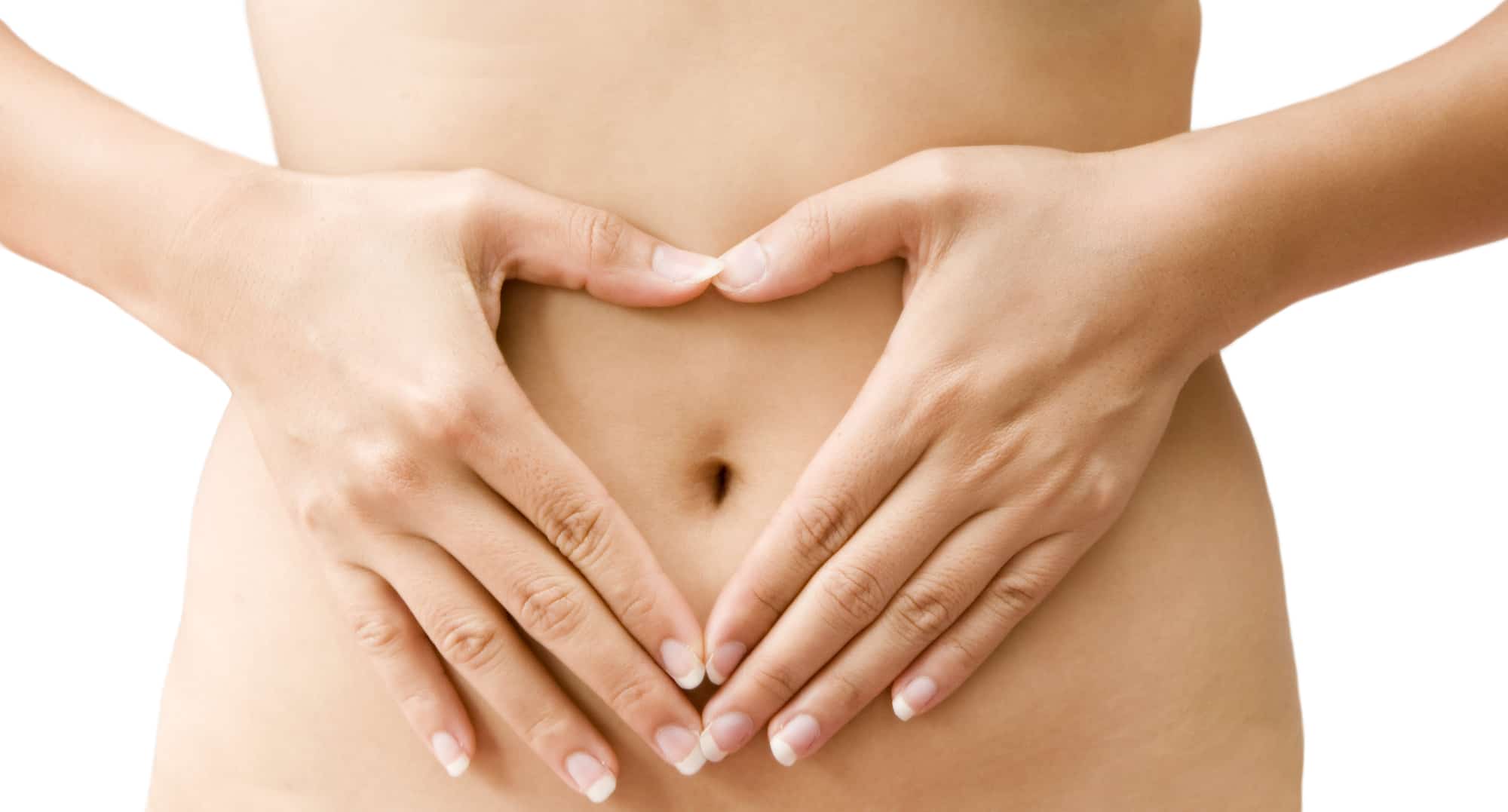
Sleep is so important for our overall well-being. Nevertheless, many people continue to neglect its healing and restoring properties in favor of “awake hours.” Some spend too much time on social media, others drink too much coffee, and too many people just have work and stress overload.
If you are one of the many people who don’t have a healthy sleep pattern, your stress belly will grow more and more. Remember one of the crucial tips from Ronaldo fitness article (and all the other celebrity workouts as well) – sleep is important. Moreover, the quality of sleep should be your priority over quantity.
If you sleep nine hours a day, it’s not a guarantee that your body gets sufficient rest. Sleep trackers can show detailed data on how well you sleep, even such basic ones as found in fitness trackers.
There are a few simple rules to follow for perfect sleep:
- Have a routine – go to bed on a regular schedule.
- Avoid bright screens at least an hour before sleep.
- Do not work out later than three hours before sleep.
- Avoid coffee in the evening.
- Make your last meal no later than three hours before sleep and keep it light.
Enjoy Self-Care Days
Self-care should be directed both on mental and physical care. Combining the two in a relaxing and enjoyable experience will reduce stress and cortisol levels. It doesn’t even have to be a full day if your life is hectic. Just an evening for yourself!
Mentallymeditation can become a first step toward eliminating guilt, shame, inadequacy, and other harmful feelings.
Physically, any treatment you prefer can be used. However, if we are targeting the belly area specifically, gentle dry brushing or a body scrub will make the area smoother. You can also apply detoxifying masks or a variety of body wraps to feel more confident in your body.
Such a pleasurable approach may seem controversial when dealing with fat, but always remember that proper rest (mental as well) is a crucial part of physical well-being.
No Smoking
This rule is similar to alcohol prohibition. Bad habits do nothing good for your health. Just like alcohol, tabacoo destroys your health and, surprisingly, affixes inches to a tress belly. No bad habits can normalize your wellbeing.
If you’ve reached this point of the article, I hope you can implement all the hints and tips I’ve given you! At least, we hope it’ll last long all the way through a motorbike.
Overall, you should know that stress is a complex issue that causes multiple disturbances in our bodies. If you want to get rid of your belly fat, stress is one of the significant factors to consider. Have you ever wondered how your current stressful life can affect your body long-term? Well, according to the abovementioned studies, people got to move to keep healthy.
You have to adopt a clever fusion between intellectual and spiritual approaches to belly fat reduction.
Sources:
- Study: Stress may cause excess abdominal fat in otherwise slender women – (2000, Yale News, news.yale.edu)
- What’s Causing My Abdominal Bloating, and How Do I Treat It? – (healthline.com)
- Conditions and Treatments: Fluid retention (oedema) – (betterhealth.vic.gov.au)
- Exercise and Depression – (2020, Debra Fulghum Bruce, PhD, webmd.com)
- How to remove cortisol from the body naturally – (2020, MedicalNewsToday, medicalnewstoday.com)
- A Janet Tomiyama, Traci Mann, Danielle Vinas, Jeffrey M Hunger, Jill Dejager, Shelley E Taylor – Low calorie dieting increases cortisol (PMID: 20368473 PMCID: PMC2895000 DOI: 10.1097/PSY.0b013e3181d9523c)
- David A. Camfield, Mark A. Wetherell, Andrew B. Scholey, Katherine H. M. Cox, Erin Fogg, David J. White, Jerome Sarris, Marni Kras, Con Stough, Avni Sali and Andrew Pipingas – The Effects of Multivitamin Supplementation on Diurnal Cortisol Secretion and Perceived Stress (2013 Nov 11., PMCID: PMC3847740, PMID: 24284609, DOI: 10.3390/nu5114429)
- Ellena Badrick, Martin Bobak, Annie Britton, Clemens Kirschbaum, Michael Marmot, and Meena Kumari – The Relationship between Alcohol Consumption and Cortisol Secretion in an Aging Cohort (2007 Dec 11., PMCID: PMC2266962, PMID: 18073316 DOI: 10.1210/jc.2007-0737)
- K Chandrasekhar, Jyoti Kapoor, Sridhar Anishetty – A prospective, randomized double-blind, placebo-controlled study of safety and efficacy of a high-concentration full-spectrum extract of ashwagandha root in reducing stress and anxiety in adults (2012 Jul, PMID: 23439798 PMCID: PMC3573577 DOI: 10.4103/0253-7176.106022)
- 17 Science-Based Benefits of Omega-3 Fatty Acids – (healthline.com)
